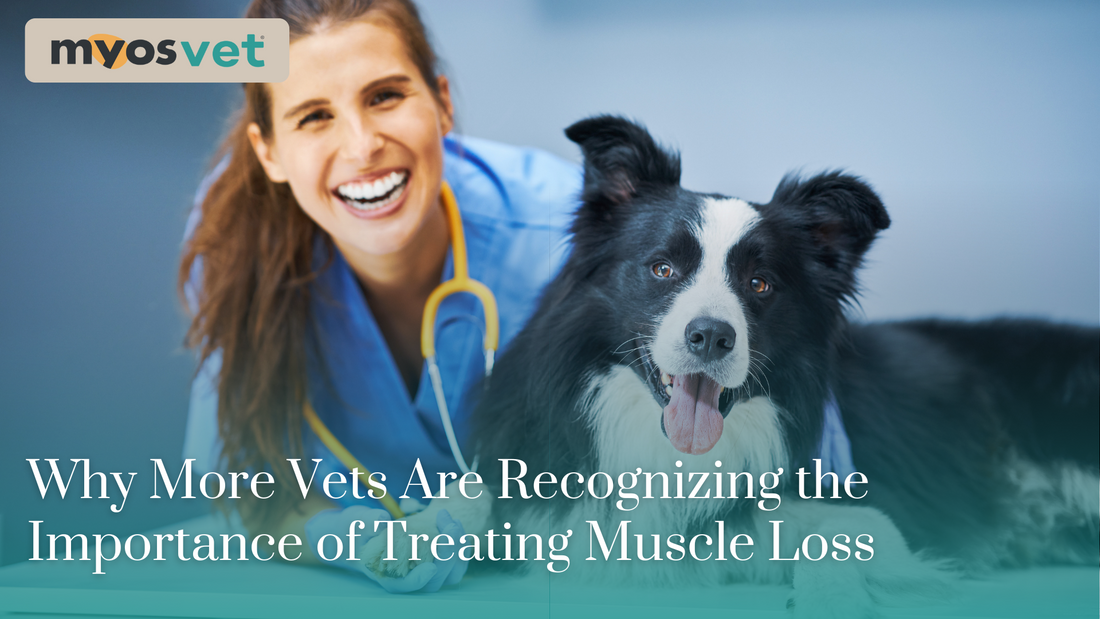
Why More Vets Are Recognizing the Importance of Treating Muscle Loss
Share
As veterinary medicine continues to evolve, so does the understanding of the multifaceted roles that muscle health plays in the overall well-being of companion animals. Muscle loss—once considered an inevitable part of aging or injury recovery—is now increasingly viewed by veterinary professionals as a critical condition that deserves direct attention and intervention.
The Overlooked Epidemic of Muscle Loss
Sarcopenia (age-related muscle loss) and muscle atrophy due to disuse, illness, or post-surgical recovery are not just cosmetic or quality-of-life issues. Muscle loss can impact mobility, metabolic health, immune function, and even wound healing. For geriatric dogs and cats, diminished muscle mass is often accompanied by reduced activity levels, increased risk of injury, and delayed recovery times. In horses, muscle loss can hinder performance, balance, and stamina—affecting both leisure and competitive animals alike.
Traditionally, muscle loss has been managed indirectly, often by treating the underlying condition or offering general dietary support. But this reactive approach misses an important point: muscle itself is an active, dynamic tissue that can—and should—be directly supported during treatment and recovery plans.
Why Muscle Health Deserves a Proactive Approach
Increasing numbers of veterinary professionals are embracing muscle-focused therapies as part of comprehensive treatment plans. This shift is driven by several key realizations:
- Muscle supports joint and skeletal health. Strong muscles stabilize joints, reducing the risk of secondary injuries.
- Muscle mass contributes to metabolic health. It plays a major role in insulin sensitivity and nutrient utilization.
- Muscle impacts recovery outcomes. Animals with better muscle tone typically recover faster from surgery or injury.
Supporting Muscle Health with Nutrition: The Role of Fortetropin®
One emerging tool in the muscle health arsenal is Fortetropin, a proprietary ingredient derived from fertilized egg yolk, found in MYOS products like the Canine Muscle Formula and Vet Strength PLUS. Fortetropin is designed to support natural muscle protein synthesis and reduce muscle degradation pathways, making it a valuable nutritional adjunct for dogs, cats, and even horses.
Veterinarians are incorporating MYOS formulations into treatment protocols for:
- Senior pets with noticeable loss of muscle mass
- Post-operative patients to support recovery
- Inactive or mobility-limited animals due to arthritis or neurological issues
- Performance horses looking to maintain optimal muscle conditioning
What makes Fortetropin stand out is its use as a non-pharmaceutical option that fits seamlessly into wellness and recovery plans. It's palatable, easy to administer, and does not interfere with other medications, making it a low-barrier addition to muscle health strategies.
A New Standard of Care
Just as we’ve embraced proactive dental care, early osteoarthritis intervention, and targeted nutritional support, it's time to elevate muscle health to a similar level of priority. The conversation around muscle loss is shifting—from something we notice to something we treat. With tools like MYOS products on hand, veterinarians are empowered to help animals not just live longer, but live stronger.
